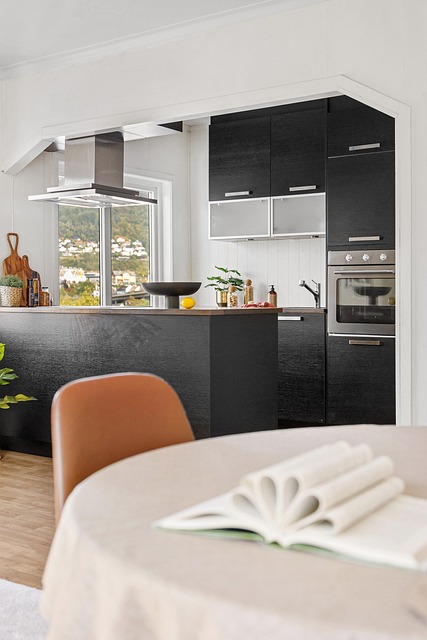Buying an Executive Condominium (EC) in Singapore is a strategic investment for those looking to balance affordability with quality living. ECs serve as a transitional housing option for both first-time homeowners and upgraders from HDB flats, offering amenities similar to private condominiums but at a lower price point due to government subsidies. To be eligible for an EC, buyers must either be Singapore citizens or part of a citizen family nucleus. These units are initially subject to public housing restrictions but can later be sold on the open market, often appreciating in value over time. The Minimum Occupation Period (MOP) ensures that ECs are primarily used for residential purposes. Historically, ECs have shown significant appreciation compared to resale HDB flats, making them a lucrative investment for those who intend to fulfill the MOP and look at long-term capital growth.
The pricing of ECs has evolved over the past decades, reflecting the property market's dynamics. In the 1990s, they were an affordable option for transitioning from public to private housing. Through the 2000s and 2010s, prices increased due to higher demand for spacious units with enhanced features. Entering the 2020s, government interventions like cooling measures and eligibility criteria changes have influenced market dynamics, maintaining ECs' accessibility and economic stability. Despite these regulations, ECs remain a preferred choice for middle-income families, with prices reaching new highs due to sustained demand.
Investing in an EC requires careful consideration of various factors: market trends driven by economic growth, interest rates, demographics, government policies like eligibility criteria and release quota for new projects, as well as the location's proximity to essential amenities, construction quality, and potential infrastructure developments. Proximity to new MRT lines or commercial centers can significantly enhance an EC's resale value. Investors must weigh these opportunities against market risks and changes in loan-to-value (LTV) limits and Additional Buyer's Stamp Duty (ABSD) implications for future property purchases to make a well-informed decision when buying an Executive Condominium in Singapore's dynamic real estate landscape.
Exploring the trajectory of Executive Condominium (EC) price appreciation over time in Singapore offers valuable insights for prospective buyers and investors alike. This article delves into the intricacies of ECs, providing a comprehensive primer to understand their unique characteristics within the broader housing market. We analyze historical price trends from the past decade, revealing patterns that inform the strategic considerations for investing in these properties. By examining factors such as government policies and housing market dynamics, buyers can make informed decisions when purchasing an Executive Condominium. Join us as we navigate the complexities of EC pricing, highlighting both the potential long-term benefits and the associated risks.
- Understanding Executive Condominiums (ECs): A Primer for Prospective Buyers
- Historical Price Trends of ECs in Singapore: A Decade-by-Decade Analysis
- Factors Influencing the Appreciation of EC Prices Over Time
- The Role of Government Policies and Housing Market Dynamics on EC Pricing
- Strategic Considerations for Investing in Executive Condominiums: Long-Term Potential and Risks
Understanding Executive Condominiums (ECs): A Primer for Prospective Buyers

Executive Condominiums (ECs) in Singapore offer a unique housing option for both first-time homeowners and upgraders. These are hybrid properties that start off with restrictions similar to public housing but are eventually entitled to be resold in the open market, potentially appreciating in value over time. Buying an Executive Condominium is a strategic choice for those looking for a cost-effective alternative to private condominiums while enjoying a high standard of living. Unlike private condos, ECs are subsidized by the government, making them more affordable, especially for young families or couples. The eligibility criteria for purchasing an EC include being a Singapore citizen or flat owners must form at least one Singaporean family nucleus.
Upon acquisition, ECs are subject to Minimum Occupation Period (MOP) requirements, which means that buyers must occupy the unit for a stipulated period before they can sell it on the open market. This mechanism is designed to ensure that ECs serve the needs of families and couples over speculative purposes. Over the years, as the MOP elapses, these properties have historically appreciated in value, often outpacing the growth of resale HDB flats. This price appreciation over time makes buying an Executive Condominium a financially sensible decision for those who plan to stay long enough to fulfill the MOP and are looking to capitalize on the property’s market value upon resale. Prospective buyers should consider factors such as location, development quality, and market trends when evaluating an EC for investment potential. With careful consideration, buying an Executive Condominium can be a sound investment with long-term benefits.
Historical Price Trends of ECs in Singapore: A Decade-by-Decade Analysis

Over the past few decades, the prices of Executive Condominiums (ECs) in Singapore have exhibited a distinct trend, reflecting broader patterns in the property market. In the 1990s, the early years saw ECs as an affordable alternative to private condominiums, with prices that were relatively lower compared to their non-subsidy counterparts. As we move into the 2000s, a gradual increase in prices was observed, partly due to the growing demand for larger living spaces and the enhancement of EC units to provide more of the amenities found in private condominiums. Fast forward to the 2010s, and the price trajectory of ECs continued its upward trend, driven by factors such as population growth, an influx of new citizens, and a robust economy that bolstered the purchasing power of potential buyers.
Entering the 2020s, the historical data shows that EC prices have been influenced by government policies aimed at balancing home ownership with economic stability. The introduction of cooling measures, changes in financing rules, and adjustments to the eligibility criteria for buying an Executive Condominium have all played a role in shaping the market. Despite these regulatory shifts, ECs have remained a popular choice among middle-income families seeking a step up from HDB flats into a more luxurious living environment without fully entering the private property market. This decade has seen prices reach new heights, reflecting the continued demand and the evolving role of ECs as a significant component of Singapore’s diverse housing landscape.
Factors Influencing the Appreciation of EC Prices Over Time

Executive condominiums (ECs) in Singapore represent a unique segment of the housing market, bridging the gap between public and private housing. The appreciation of EC prices over time is influenced by a multitude of factors that investors and potential homeowners should consider when buying an executive condominium. Market dynamics such as demand and supply imbalances, economic growth, interest rates, and the maturity of the development play a pivotal role in shaping price trends.
Demand drivers include population growth, demographic shifts favoring smaller families who find ECs an affordable option, and the unique selling points of specific developments. Additionally, government policies, such as the eligibility criteria for purchasing an EC and the varying quotas for new launches, can impact supply levels and price points. Other influential factors include the proximity to amenities, accessibility, and the overall quality of construction and finishes. Infrastructure developments, such as new MRT lines or improvements in road networks, can also enhance the desirability of an EC, leading to price appreciation over time. Investors looking to buy an executive condominium should thus keep a keen eye on these factors to make informed decisions that align with their long-term financial objectives.
The Role of Government Policies and Housing Market Dynamics on EC Pricing

The pricing trajectory of Executive Condominiums (ECs) is influenced by a confluence of factors, with government policies and housing market dynamics playing pivotal roles in their cost over time. Buying an EC is a significant financial decision, one that is shaped by the ever-evolving policies set forth by the Singaporean government. These policies are designed to ensure a balanced housing mix within the city-state, catering to both upgraders and first-time homeowners. As such, measures like the introduction of additional restrictions or the adjustment of grant ceilings can lead to fluctuations in demand, thereby impacting EC pricing. For instance, when the qualifying criteria for purchasing an EC were tightened, it directly affected the affordability and desirability of these units, influencing their price points.
On a broader scale, the housing market dynamics contribute to the appreciation or depreciation of EC prices. Factors such as economic growth, interest rates, population growth, and other macroeconomic indicators all play a part in the pricing strategy of ECs. The supply of these condominiums is also carefully managed by the government through the Land Sales Programme, which aligns with their long-term housing strategies. Market sentiment, influenced by national events or global economic trends, can also sway purchasing decisions and price expectations for EC buyers. Consequently, understanding the interplay between government policies and market dynamics becomes crucial when considering the long-term investment potential of buying an Executive Condominium in Singapore.
Strategic Considerations for Investing in Executive Condominiums: Long-Term Potential and Risks

Investing in an Executive Condominium (EC) presents a unique opportunity for those looking to purchase a subsidized flat that can appreciate in value over time. Buying an Executive Condominium is a strategic decision that should take into account several long-term factors, including market trends, government policies, and the EC’s location and development potential. As these properties are designed for the middle-income segment of the population but allow for upgrading upon meeting certain criteria, they offer a flexible and potentially profitable investment avenue.
The appreciation potential of ECs is influenced by the maturity of the estate, proximity to future infrastructure developments, and overall property market conditions in Singapore. A well-located EC situated near upcoming MRT stations or commercial hubs can expect to see a significant rise in demand, which may translate into higher resale values. On the other hand, investors must also be cognizant of the risks associated with real estate investments. Market volatility, changes in loan-to-value (LTV) limits, and the lifting or imposition of additional buyer’s stamp duty (ABSD) for second-time buyers are factors that can impact the investment’s performance. Thus, a thorough analysis of both the potential returns and the associated risks is imperative when considering the purchase of an Executive Condominium.
In conclusion, the trajectory of EC price appreciation in Singapore over the decades presents a compelling case for those considering Buying An Executive Condominium as part of their long-term investment portfolio. Historical data, as detailed in “Historical Price Trends of ECs in Singapore: A Decade-by-Decade Analysis,” reveals a pattern of growth influenced by a multitude of factors, from government policies to housing market dynamics, as examined in “The Role of Government Policies and Housing Market Dynamics on EC Pricing.” Prospective buyers must weigh these trends alongside strategic considerations for investment, as outlined in “Strategic Considerations for Investing in Executive Condominiums: Long-Term Potential and Risks.” With a thorough understanding of the market’s past and potential future directions, informed decisions can be made. As the article has illustrated, the EC market is nuanced and multifaceted, yet historically resilient. This primer underscores the importance of comprehensive research and careful planning when pursuing the opportunity to Buying An Executive Condominium, ensuring a well-informed investment strategy tailored to individual financial goals and market conditions.
